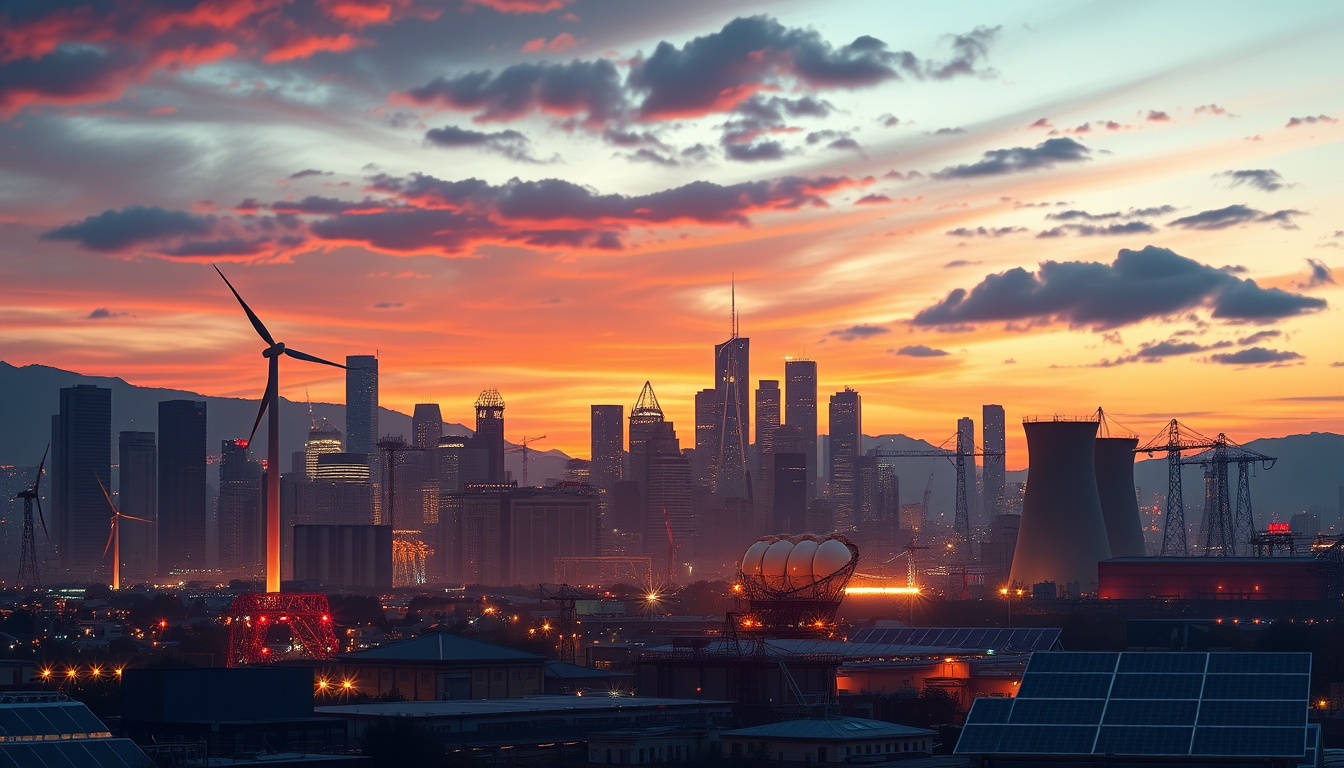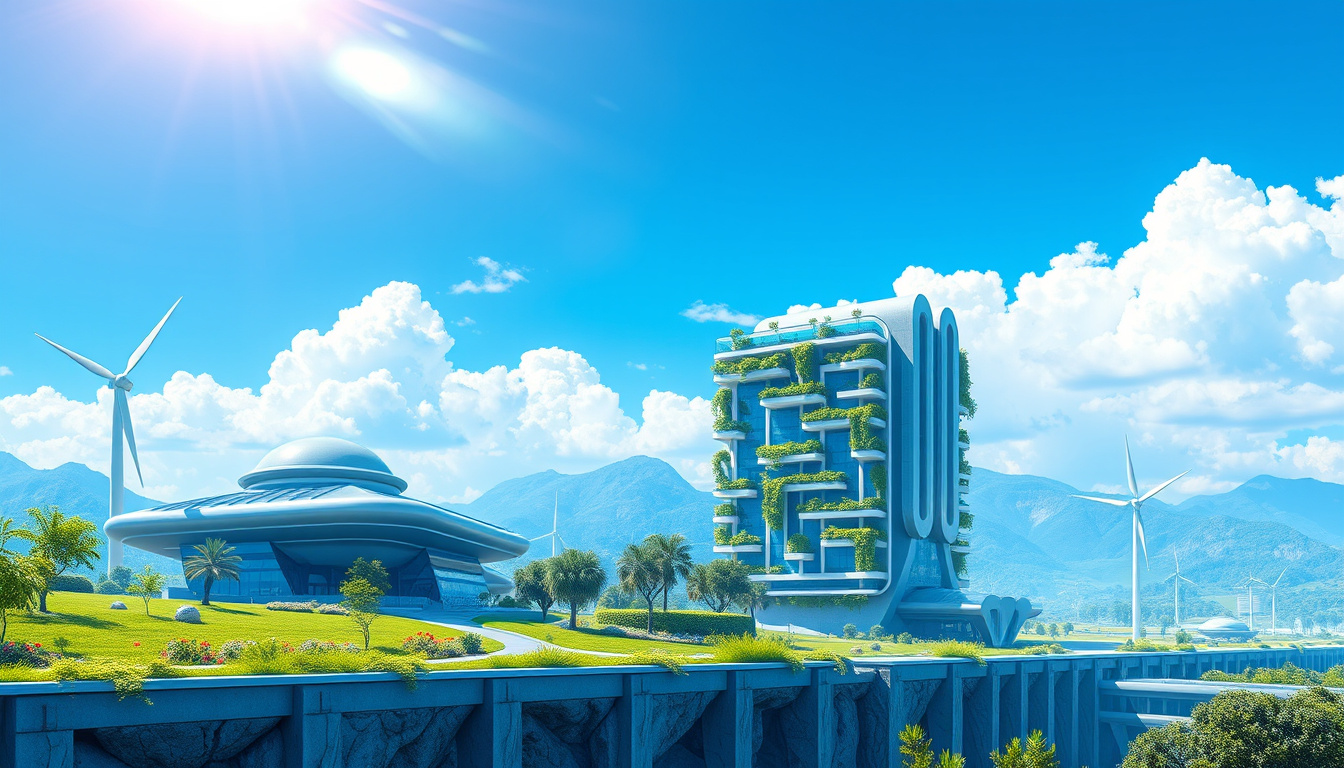Global Energy Crisis: How Countries Are Responding
The world is currently experiencing a significant transformation in energy dynamics, emphasizing the pressing concerns surrounding the global energy crisis. This crisis, marked by fluctuating energy prices, geopolitical tensions, and increasing climate change effects, has prompted countries around the globe to take decisive actions. In this article, we explore the global energy crisis: how countries are responding with innovative solutions, national strategies for renewable energy adoption, and collaborative efforts on an international scale to build a sustainable future. From the effects on various economies to the prospects of technological advancements, we dissect how the energy landscape is evolving in response to this unprecedented challenge.

Key Takeaways
- The global energy crisis is triggering significant economic and social challenges worldwide.
- Different countries are facing unique impacts based on their energy dependencies and resource availability.
- Many nations are increasingly investing in renewable energy to enhance energy security and sustainability.
- International collaboration is critical for addressing the global energy crisis and sharing best practices.
- Future solutions will likely require a combination of innovation, policy changes, and collective action among nations.
Overview of the Global Energy Crisis
The Global Energy Crisis: How Countries Are Responding has become one of the most pressing issues of our time, affecting nations across the globe. As fossil fuel supplies dwindle and demand skyrockets, countries are scrambling to find sustainable solutions. The crisis is exacerbated by geopolitical tensions, climate change, and the fluctuating prices of oil and gas, all of which contribute to heightened energy insecurity. In response, many nations are pivoting towards renewable energy sources, implementing energy efficiency programs, and investing in technological innovation to create a more resilient energy infrastructure. From the European Union’s ambitious Green Deal to Asian countries modernizing their grid systems, the global response showcases a collective effort to address the multi-faceted challenges of the energy crisis while striving for environmental sustainability.
Impact on Different Countries
The ongoing global energy crisis has prompted diverse responses from countries around the world, each tailoring their strategies based on unique energy needs and economic circumstances. For instance, European nations are aggressively investing in renewable energy technologies and infrastructure to reduce reliance on fossil fuels, while simultaneously implementing energy conservation measures to combat soaring costs. In contrast, major oil-producing countries, such as Saudi Arabia and Russia, leverage their abundant resources to stabilize their economies by maintaining high oil prices, which can contribute to global inflation. Meanwhile, developing nations face a dual challenge; they seek to balance the urgent need for energy access with the fiscal constraints that limit investment in sustainable energy solutions. Overall, the global energy crisis highlights how countries are responding differently based on their economic structures and energy policies, ultimately influencing international relations and future energy initiatives.
‘The greatest threat to our planet is the belief that someone else will save it.’ – Robert Swan

Strategies for Renewable Energy Adoption
As the global energy crisis unfolds, countries around the world are increasingly adopting innovative strategies to transition to renewable energy sources. The urgency of climate change and the instability of fossil fuel markets are driving nations to rethink their energy policies. Some of the most effective strategies include investing in solar and wind energy projects, offering incentives for energy-efficient technologies, and enhancing grid infrastructure to accommodate distributed energy generation. For instance, countries like Germany and Denmark have made significant strides by integrating large-scale wind farms into their energy mix, showcasing successful models of sustainable practices. Additionally, governments are promoting public-private partnerships to accelerate the adoption of renewables, facilitating research and development that focuses on cutting-edge technologies such as energy storage and smart grids. By prioritizing these strategies, countries not only mitigate the impact of the global energy crisis but also pave the way for a sustainable future where renewable energy becomes the backbone of the economy.
International Collaboration and Agreements
The global energy crisis has prompted countries to engage in international collaboration and agreements to address the pressing challenges faced by the energy sector. As nations grapple with fluctuating energy prices, supply chain disruptions, and the urgent need for sustainable energy solutions, cooperation has become increasingly vital. For instance, countries are forming alliances to share best practices in renewable energy technologies and develop frameworks for reducing greenhouse gas emissions. Bilateral agreements are also being forged to enhance energy trade and diversify energy sources, ensuring that countries are not overly reliant on one supply chain. Furthermore, international summits such as COP conferences provide platforms for nations to negotiate commitments toward a more sustainable future. As the global energy crisis unfolds, countries are responding not only with urgency but with a spirit of collaboration that aims to create a more resilient and sustainable global energy landscape.

Future Prospects and Solutions
The Global Energy Crisis has prompted various nations to reassess their energy policies and invest heavily in alternative solutions to secure a stable energy future. As countries grapple with rising energy demands and depleting fossil fuel resources, responses vary from enhanced energy efficiency programs to significant investments in renewable energy sources such as solar, wind, and hydroelectric power. Countries like Germany and Denmark are leading the charge by transitioning to sustainable energy systems, significantly cutting down on carbon emissions while ensuring energy security. Additionally, innovative solutions such as energy storage technologies and smart grids are being developed to optimize energy distribution and usage. As global stakeholders continue to navigate this crisis, collaboration and shared knowledge will be crucial in crafting viable strategies that not only address current energy shortages but also pave the way for a resilient global energy framework.
Frequently Asked Questions
What is the Global Energy Crisis?
The Global Energy Crisis refers to the widespread challenges countries face regarding energy supply, rising costs, and the urgent need to transition to sustainable energy sources due to climate change and resource depletion.
How are different countries impacted by the Global Energy Crisis?
Countries are experiencing varying impacts based on their energy dependence, economic structures, and available resources. For example, energy-rich nations may face fluctuating prices, while energy-importing countries struggle with supply shortages and rising costs.
What strategies are countries adopting to promote renewable energy?
Countries are implementing multiple strategies including investing in solar and wind energy, enhancing energy efficiency, providing incentives for clean technology adoption, and developing infrastructure to support sustainable energy initiatives.
What are some examples of international collaboration addressing the energy crisis?
Countries are participating in international agreements such as the Paris Agreement, sharing technology, knowledge, and best practices for energy transition, while also collaborating on projects that aim to enhance global energy security.
What does the future look like for the Global Energy Crisis?
The future will likely involve a continued shift towards renewable energy sources, increased innovation in energy technologies, and collaborative international efforts to address challenges, aiming for a more sustainable and resilient energy landscape.
